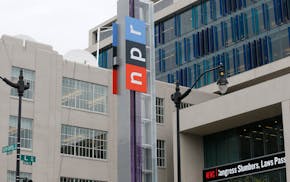The youthfulness of the barista serving them has long made it easy for Starbucks customers to console themselves that some of the $5 they are shelling out for a Frappuccino helps put a kid through college. Increasingly, their assumption will be correct.
Last week, Howard Schultz, the boss of the coffee retailer, told a meeting in New York of hundreds of top-performing employees — and their families — that the firm will pay for their university educations. Starting later this year, it will cover all the tuition fees in the final two years of college for staffers who work at least 20 hours a week, and may also contribute to the cost of their first two years. The only conditions are that they must get their degree online from Arizona State University, and achieve a certain number of course credits.
This is highly caffeinated PR, at a time when cheaper rivals in the fast-food industry that have been encroaching on Starbucks' coffee business are being criticized by disgruntled workers and unions for their low wages. Starbucks already offers good health care benefits and employee share ownership.
But Schultz says that "when we talked to our people, help with college was the thing they wanted most." Of the firm's 135,000 retail employees in America, 28 percent are graduates, 32 percent are undergraduates and 42 percent (including some graduates) are not currently studying but would like to be. Schwartz says he plans to spend "tens of millions" on the program; 15,000 workers may benefit in the first year.
Starbucks is hardly the first firm to pay college fees for some of their staff, though other employers typically do so only to give them specific skills needed by the firm, and require them to remain on the payroll for a given period after completing the course. Starbucks employees will have no such obligations, though Schultz says he hopes they will see enough career potential with the company to want to do so.
He thinks shareholders will benefit because employees will be more motivated and loyal. Although the attrition rate at Starbucks is well below the fast-food industry's average of around 110 percent a year, it is still said to turn over two-thirds of its workforce annually. Reducing that, and thus the cost of recruiting, training and integrating new workers, could save a fortune. Schultz says he hopes to eventually offer similar help with higher-education costs to employees outside the U.S.
The partnership with Starbucks is a huge win for Arizona State and Michael Crow, its entrepreneurial president. It has been more enthusiastic than many other universities in developing online degree courses, which it sells for $3,000-$10,000.
Schultz says it was clearly the best of a large number of online-course providers it considered, but some Starbucks employees may feel it is unfair that they have to transfer to Arizona State to get their degree paid for, and there may be some glitches if courses they had already completed at other universities are not considered good enough to earn credits at Arizona.
Still, since Schultz returned to run Starbucks in 2008 when it was in deep trouble, almost everything he has tried has paid off, from selling healthier food to developing instant versions of its coffee. And although officials in Europe recently announced a probe into the low rate of tax paid by Starbucks (and some other U.S. multinationals), it seems to have stemmed a customer revolt in Britain by agreeing to pay some taxes it did not strictly owe.
Copyright 2013 The Economist Newspaper Limited, London. All Rights Reserved. Reprinted with permission.
Abu Ghraib military contractor warned bosses of abuses 2 weeks after arriving, testimony reveals
Biden vows to shield US steel industry by blocking Japanese merger and seeking new Chinese tariffs
Georgia's parliament votes to approve so-called 'Russian law' targeting media in first reading
Jill Biden says an agreement to let federal employee military spouses work from overseas is overdue
